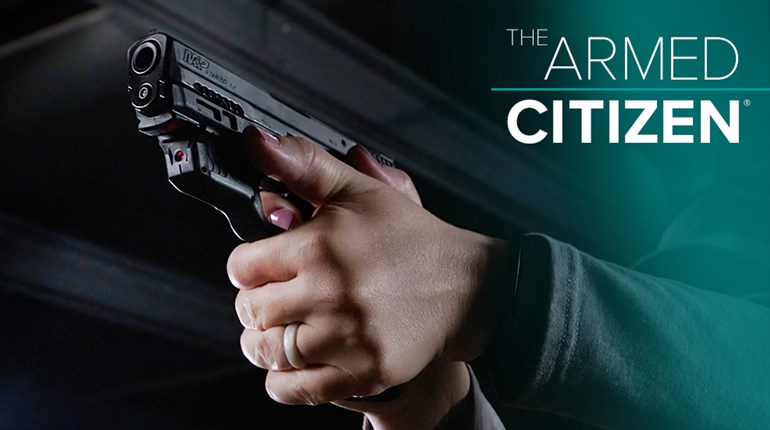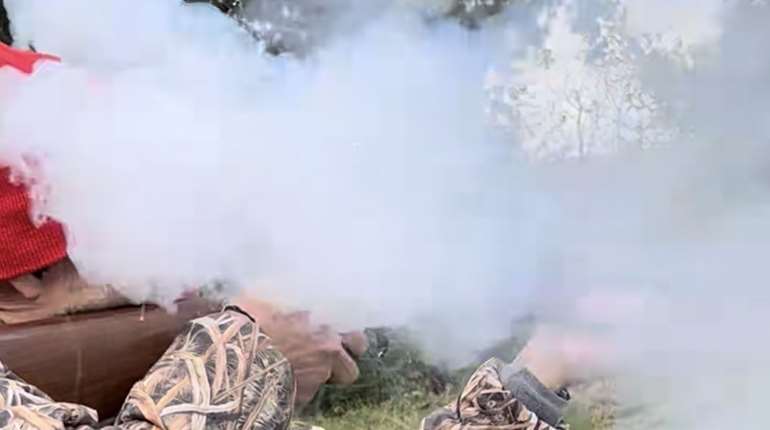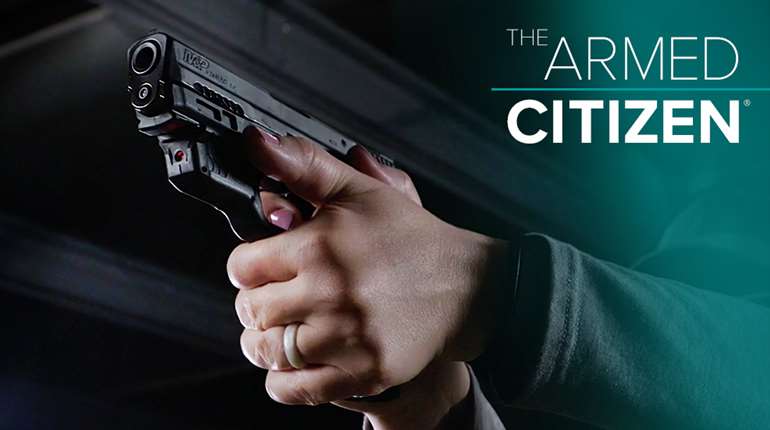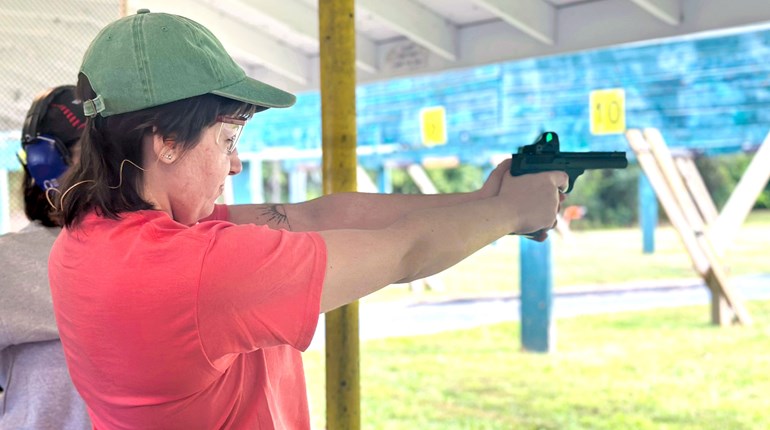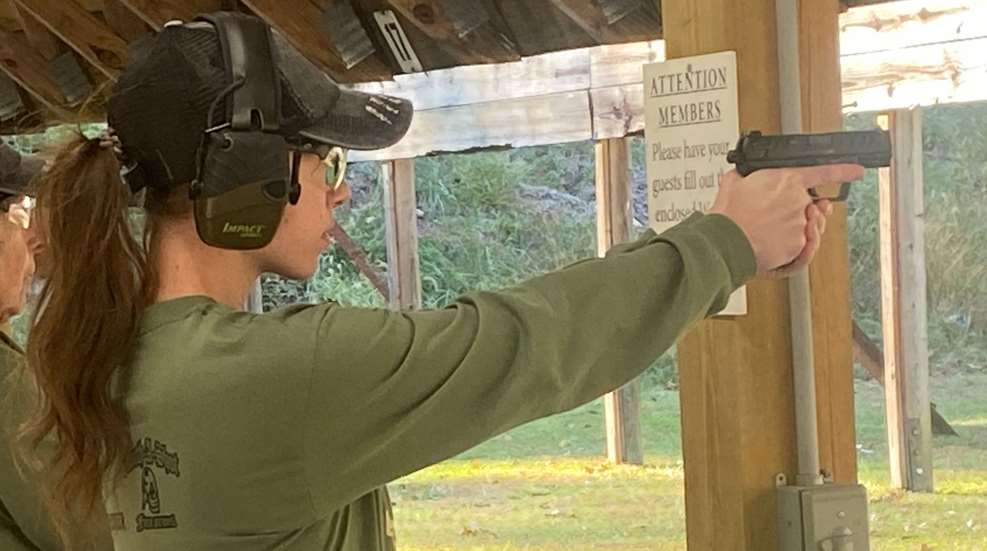
Contrary to what anti-gun advocates espouse, we gun owners aren’t bloodthirsty or prone to violence. We aren’t living out some sick Punisher-style fantasy just waiting for the day we get an excuse to shoot someone. In fact, quite the opposite: We hope and pray we never have to use our firearm in self-defense, but we accept the reality that the world isn’t as safe as we’d like it to be, and we’ve prepared ourselves with the best possible tool to protect ourselves and our families if the need should ever arise.
It’s important that gun owners understand what’s self-defense and what’s not. In other words, we must know when and why we shoot (and when and why we don’t).
There are a lot of legal idiosyncrasies here, and a lot of them differ from state to state, but to sum it up, we shoot in self-defense for one reason and one reason only: To prevent imminent death or great bodily harm to ourselves or others.If you’re not familiar with AOI or other threat assessment models, this is a good time to read up on them, because a good threat assessment model will help you make the shoot/no-shoot decision based on whether or not you’re truly in danger of imminent death or great bodily harm.
“Great bodily harm” or injury has slightly different definitions depending on the jurisdiction, but it’s generally defined as any injury that creates a substantial risk of death or serious permanent disfigurement, or which causes a permanent or prolonged loss or impairment of any body member or organ. In most if not all jurisdictions, this includes rape, and in some places it can include things like kidnapping, particularly if it’s violent.
There is much more to be said on that topic, but reading the AOI article linked above will give you the basics. For the purposes of this article, I’ll reiterate what’s really important to know regarding why we shoot: We only use lethal force in self-defense to prevent imminent death or great bodily harm to ourselves or others. While you’re reading, check out this article about getting involved in other people’s business to tackle the “or others” part of that definition.
Again, this is the only reason we shoot in self-defense. And that means there are plenty of reasons we wouldn’t shoot legally and morally:
- We don’t shoot strictly to protect property, and I hate to tell you this, but that includes your pets (legally speaking) in almost all jurisdictions.
- We don’t shoot trespassers on our property simply for being there—as the recent ding-dong-ditch news story has demonstrated. (A trespasser inside your house is an entirely different discussion.)
- We don’t shoot a bad guy just to stop him from running away or to hold him for the police.
- We don’t shoot to enact justice for whatever wrong was committed against us unless it still constitutes an imminent threat.
Which brings up the second aspect to the question “Why do we shoot?” which is more accurately phrased “What do we hope to achieve by shooting in self-defense?”
The answer to that is simple: When we are required to use our firearm in defense of our self or others, we shoot to stop the threat. Period. We’re under immediate threat (or we wouldn’t be shooting in the first place, as we’ve just discussed) and as soon as we are no longer under immediate threat, we stop shooting. This means:
- We do not shoot to kill.
- We do not shoot to wound.
- We do not shoot to warn or scare someone into compliance.
- We do not try to shoot the knife out of the bad guy’s hands or shoot him in the knee so he can’t run away, etc. Those are very low-percentage shots on constantly moving targets, which means they’re unlikely to stop the threat.
- We do not go for a “finishing shot” just to make sure he’s really dead, like in the movies.
We simply shoot to stop the threat, and however that’s accomplished, we stop shooting when the threat stops being threatening. That might mean the bad guy has succumbed to his injuries. It might mean he drops his weapon and runs away. It might mean he is incapacitated and no longer able to threaten you. Whatever the case, once the threat has stopped, we stop. The situation might not be over for good, so you might need to stay vigilant, assess your surroundings and keep the gun up and ready in case the threat becomes threatening again. But remember, the use of lethal force is a reaction. You’re playing defense, not offense. If you’re no longer in danger but you continue to use lethal force to “finish it” or to exact your version of justice or revenge or something else, you’ve switched to offense, and that can get you a prison term.
Using our firearms in self-defense is something we all hope we never have to do, but if you’re faced with that situation, remember when and why we shoot: We shoot to prevent death or great bodily injury to ourselves or others, and when we do make that decision, we shoot with the goal of stopping the threat.
—Jo Deering














